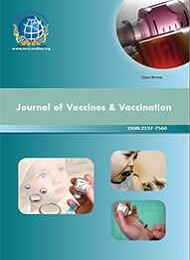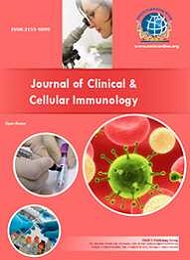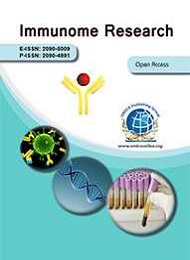Theme: Discussion on Novel research technologies and practical challenges in Vaccination
Vaccines Summit 2017
ConferenceSeries Ltd is organizing "15th International Conference on Vaccines and Immunization" during February 20-21, 2017 in Berlin, Germany which includes prompt keynote presentations, Oral talks, Poster presentations and Exhibitions. Vaccines Summit 2017 features highly enlightening and interactive sessions to encourage the exchange of ideas across a wide range of disciplines in the field of vaccination and therapeutics.
Vaccines Summit 2017 conference aims to promote and share knowledge on current research & production of vaccines. The conference gathers Immunology specialists, Scientists, Professors and research faculty from academia, Clinical, Veterinary, Medical, CEO’s, Presidents, Policy makers, Professionals from regulatory agencies, Public health professionals, Business delegates of vaccines, Value Chain community of the vaccines with the following profession areas: Innovators, Disruptors, and Influencers, Post doc and PhD students in allied disciplines across the globe under a single roof gather in Phoenix to speak on current research and future strategies for development and production of vaccine.
Track 1: Bacterial and Viral Vaccines:
Vaccination can be defined as active immunity produced by vaccine. It is immunity and immunologic memory similar to natural infection but without risk of disease. There are two basic types of vaccines: live attenuated and inactivated. Live attenuated vaccines are produced by modifying a disease-producing virus or bacterium in a laboratory.Vaccines derived from bacterium is called as bacterial vaccine and from virus is as viral vaccine. The resulting vaccine organism retains the ability to replicate and produce immunity, but usually does not cause illness. Inactivated vaccines can be composed of either whole viruses or bacteria, or fractions of either.
Related: Vaccines Conferences | World Vaccine Congress | Immunology Conferences | ConferenceSeries Ltd:
15th Annual Summit on Vaccines and Immunization, February 20-21, 2017 German; 17th International Conference on Children Vaccines, August 21-22, 2017 UK; 18th Global Summit & Expo on Vaccines & Vaccination September 18-19, 2017 Houston, USA; 20th Asia Pacific Global Summit and Expo on Vaccines & Vaccination October 5-7, 2017, 2017 Kuala Lumpur, Malaysia; World Vaccine Congress Washington 2017 10 - 12 April, USA; International Conference on Vaccines, February 20-22, 2017 USA; 19th International Conference on Vaccines and Immunization, June 25 - 26, 2017 France; 30th Annual Infectious Diseases in Children Symposium, November 18-19, 2017 USA; The 2017 Florida Immunization Summit, February 2-4, 2017 USA; HIV Vaccines, March 26—30, 2017 USA; SVS 2017 – Skin Vaccination Summit, 22-24 May 2017 The Netherlands; IVW 2017 – Influenza Vaccines for the World, 19-21 April 2017 Switzerland
Related Societies:
European Society for Paediatric Infectious Diseases, Switzerland; European Union Geriatric Medicine Society, Austria; The Anti-Vaccination Society of America, Philadelphia; Infectious Diseases Society of America, Virginia; Association of Immunization Managers, Maryland; International Society of Vaccines, France; European Federation of Immunological Societies, Italy; European Academy of Allergy and Clinical Immunology, Switzerland; The American Association of Immunologists, USA; Clinical Immunology Society, Wisconsin; British Society for Immunology, London; The Federation of Clinical Immunology Societies, Wisconsin; International Union of Immunological Societies, Germany; American Society for Microbiology, USA; Microbiology Society, London; Society for Applied Microbiology, London; European Society of Clinical Microbiology and Infectious Diseases, Switzerland; Swiss Society for Microbiology, Switzerland; Federation of European Microbiological Societies, Netherlands.
Track 2: Vaccines against infectious diseases:
Vaccination is the administration of agent-specific, but relatively harmless, antigenic components that in vaccinated individuals can induce protective immunity against the corresponding infectious agent. In practice, the terms “vaccination” and “immunization” are often used interchangeably. Vaccination is a highly effective method of preventing certain infectious diseases. Vaccines are generally very safe and serious adverse reactions are uncommon. Routine immunization programmes protect most of the world’s children from a number of infectious diseases that previously claimed millions of lives each year.
Related: Vaccines Conferences | World Vaccine Congress | Immunology Conferences | ConferenceSeries Ltd:
15th Annual Summit on Vaccines and Immunization, February 20-21, 2017 German; 17th International Conference on Children Vaccines, August 21-22, 2017 UK; 18th Global Summit & Expo on Vaccines & Vaccination September 18-19, 2017 Houston, USA; 20th Asia Pacific Global Summit and Expo on Vaccines & Vaccination October 5-7, 2017, 2017 Kuala Lumpur, Malaysia; World Vaccine Congress Washington 2017 10 - 12 April, USA; International Conference on Vaccines, February 20-22, 2017 USA; 19th International Conference on Vaccines and Immunization, June 25 - 26, 2017 France; 30th Annual Infectious Diseases in Children Symposium, November 18-19, 2017 USA; The 2017 Florida Immunization Summit, February 2-4, 2017 USA; HIV Vaccines, March 26—30, 2017 USA; SVS 2017 – Skin Vaccination Summit, 22-24 May 2017 The Netherlands; IVW 2017 – Influenza Vaccines for the World, 19-21 April 2017 Switzerland
Related Societies:
European Society for Paediatric Infectious Diseases, Switzerland; European Union Geriatric Medicine Society, Austria; The Anti-Vaccination Society of America, Philadelphia; Infectious Diseases Society of America, Virginia; Association of Immunization Managers, Maryland; International Society of Vaccines, France; European Federation of Immunological Societies, Italy; European Academy of Allergy and Clinical Immunology, Switzerland; The American Association of Immunologists, USA; Clinical Immunology Society, Wisconsin; British Society for Immunology, London; The Federation of Clinical Immunology Societies, Wisconsin; International Union of Immunological Societies, Germany; American Society for Microbiology, USA; Microbiology Society, London; Society for Applied Microbiology, London; European Society of Clinical Microbiology and Infectious Diseases, Switzerland; Swiss Society for Microbiology, Switzerland; Federation of European Microbiological Societies, Netherlands.
Track 3: Cancer Vaccines:
Cancer is the name given for these diseases in which the body cells become abnormal and divide without control. Cancer cells may invade nearby tissues. And they may spread through the bloodstream and lymphatic system to other parts of the body. The aim of cancer vaccines is to stimulate the immune system to be able to recognise cancer cells as abnormal and destroy them. Some vaccines for particular cancers have been developed and are being tested to see whether they can treat a cancer, or help to stop it from coming back after cancer treatment. There are two major categories that cancer vaccines fit into: Specific cancer vaccine & Universal cancer vaccine. As the name suggests, specific cancer vaccines are designed to treat specific types of cancers. In other words, a vaccine could be developed for lung cancer, another vaccine could be used to treat colon cancer and yet another vaccine could treat skin cancer and so on. A more appealing cancer vaccine would be one that could fight cancer cells regardless of cancer type. This type of vaccine is called a universal cancer vaccine. Different types of cancer vaccines being developed these days are: Antigen vaccines, Anti-idiotype vaccines, Dendritic cell vaccines, Tumor cell vaccines, DNA vaccines.
Related: Vaccines Conferences | World Vaccine Congress | Immunology Conferences | ConferenceSeries Ltd:
15th Annual Summit on Vaccines and Immunization, February 20-21, 2017 German; 17th International Conference on Children Vaccines, August 21-22, 2017 UK; 18th Global Summit & Expo on Vaccines & Vaccination September 18-19, 2017 Houston, USA; 20th Asia Pacific Global Summit and Expo on Vaccines & Vaccination October 5-7, 2017, 2017 Kuala Lumpur, Malaysia; World Vaccine Congress Washington 2017 10 - 12 April, USA; International Conference on Vaccines, February 20-22, 2017 USA; 19th International Conference on Vaccines and Immunization, June 25 - 26, 2017 France; 30th Annual Infectious Diseases in Children Symposium, November 18-19, 2017 USA; The 2017 Florida Immunization Summit, February 2-4, 2017 USA; HIV Vaccines, March 26—30, 2017 USA; SVS 2017 – Skin Vaccination Summit, 22-24 May 2017 The Netherlands; IVW 2017 – Influenza Vaccines for the World, 19-21 April 2017 Switzerland
Related Societies:
European Society for Paediatric Infectious Diseases, Switzerland; European Union Geriatric Medicine Society, Austria; The Anti-Vaccination Society of America, Philadelphia; Infectious Diseases Society of America, Virginia; Association of Immunization Managers, Maryland; International Society of Vaccines, France; European Federation of Immunological Societies, Italy; European Academy of Allergy and Clinical Immunology, Switzerland; The American Association of Immunologists, USA; Clinical Immunology Society, Wisconsin; British Society for Immunology, London; The Federation of Clinical Immunology Societies, Wisconsin; International Union of Immunological Societies, Germany; American Society for Microbiology, USA; Microbiology Society, London; Society for Applied Microbiology, London; European Society of Clinical Microbiology and Infectious Diseases, Switzerland; Swiss Society for Microbiology, Switzerland; Federation of European Microbiological Societies, Netherlands.
Track 4: DNA, Protein and Toxoid Vaccines:
Scientists take many approaches to designing vaccines against a microbe. These choices are typically based on fundamental information about the microbe, such as how it infects cells and how the immune system responds to it, as well as practical considerations, such as regions of the world where the vaccine would be used. A DNA vaccine against a microbe would evoke a strong antibody response to the free-floating antigen secreted by cells, and the vaccine also would stimulate a strong cellular response against the microbial antigens displayed on cell surfaces. The DNA vaccine couldn’t cause the disease because it wouldn’t contain the microbe, just copies of a few of its genes. In addition, DNA vaccines are relatively easy and inexpensive to design and produce. Inactivated vaccines can be composed of either whole viruses or bacteria, or fractions of either. Fractional vaccines are either protein-based or polysaccharide-based. Protein-based vaccines include toxoids (inactivated bacterial toxin) and subunit or subvirion products. When the immune system receives a vaccine containing a harmless toxoid, it learns how to fight off the natural toxin. The immune system produces antibodies that lock onto and block the toxin. Vaccines against diphtheria and tetanus are examples of toxoid vaccines.
Related: Vaccines Conferences | World Vaccine Congress | Immunology Conferences | ConferenceSeries Ltd:
15th Annual Summit on Vaccines and Immunization, February 20-21, 2017 German; 17th International Conference on Children Vaccines, August 21-22, 2017 UK; 18th Global Summit & Expo on Vaccines & Vaccination September 18-19, 2017 Houston, USA; 20th Asia Pacific Global Summit and Expo on Vaccines & Vaccination October 5-7, 2017, 2017 Kuala Lumpur, Malaysia; World Vaccine Congress Washington 2017 10 - 12 April, USA; International Conference on Vaccines, February 20-22, 2017 USA; 19th International Conference on Vaccines and Immunization, June 25 - 26, 2017 France; 30th Annual Infectious Diseases in Children Symposium, November 18-19, 2017 USA; The 2017 Florida Immunization Summit, February 2-4, 2017 USA; HIV Vaccines, March 26—30, 2017 USA; SVS 2017 – Skin Vaccination Summit, 22-24 May 2017 The Netherlands; IVW 2017 – Influenza Vaccines for the World, 19-21 April 2017 Switzerland
Related Societies:
European Society for Paediatric Infectious Diseases, Switzerland; European Union Geriatric Medicine Society, Austria; The Anti-Vaccination Society of America, Philadelphia; Infectious Diseases Society of America, Virginia; Association of Immunization Managers, Maryland; International Society of Vaccines, France; European Federation of Immunological Societies, Italy; European Academy of Allergy and Clinical Immunology, Switzerland; The American Association of Immunologists, USA; Clinical Immunology Society, Wisconsin; British Society for Immunology, London; The Federation of Clinical Immunology Societies, Wisconsin; International Union of Immunological Societies, Germany; American Society for Microbiology, USA; Microbiology Society, London; Society for Applied Microbiology, London; European Society of Clinical Microbiology and Infectious Diseases, Switzerland; Swiss Society for Microbiology, Switzerland; Federation of European Microbiological Societies, Netherlands.
Track 5: Combination and Conjugate Vaccines:
Combination vaccines take two or more vaccines that could be given individually and put them into one shot. Children get the same protection as they do from individual vaccines given separately—but with fewer shots. The use of combination vaccines improves timely vaccination coverage, according to several studies. Conjugate polysaccharide vaccines are those in which the polysaccharide is chemically linked to a protein. This linkage makes the polysaccharide a more potent vaccine. Polysaccharide coatings disguise a bacterium’s antigens so that the immature immune systems of infants and younger children can’t recognize or respond to them. Conjugate vaccines, a special type of subunit vaccine, get around this problem. When making a conjugate vaccine, antigens or toxoids from a microbe that an infant’s immune system can recognize to the polysaccharides are linked. The linkage helps the immature immune system react to polysaccharide coatings and defend against the disease-causing bacterium.
Related: Vaccines Conferences | World Vaccine Congress | Immunology Conferences | ConferenceSeries Ltd:
15th Annual Summit on Vaccines and Immunization, February 20-21, 2017 German; 17th International Conference on Children Vaccines, August 21-22, 2017 UK; 18th Global Summit & Expo on Vaccines & Vaccination September 18-19, 2017 Houston, USA; 20th Asia Pacific Global Summit and Expo on Vaccines & Vaccination October 5-7, 2017, 2017 Kuala Lumpur, Malaysia; World Vaccine Congress Washington 2017 10 - 12 April, USA; International Conference on Vaccines, February 20-22, 2017 USA; 19th International Conference on Vaccines and Immunization, June 25 - 26, 2017 France; 30th Annual Infectious Diseases in Children Symposium, November 18-19, 2017 USA; The 2017 Florida Immunization Summit, February 2-4, 2017 USA; HIV Vaccines, March 26—30, 2017 USA; SVS 2017 – Skin Vaccination Summit, 22-24 May 2017 The Netherlands; IVW 2017 – Influenza Vaccines for the World, 19-21 April 2017 Switzerland
Related Societies:
European Society for Paediatric Infectious Diseases, Switzerland; European Union Geriatric Medicine Society, Austria; The Anti-Vaccination Society of America, Philadelphia; Infectious Diseases Society of America, Virginia; Association of Immunization Managers, Maryland; International Society of Vaccines, France; European Federation of Immunological Societies, Italy; European Academy of Allergy and Clinical Immunology, Switzerland; The American Association of Immunologists, USA; Clinical Immunology Society, Wisconsin; British Society for Immunology, London; The Federation of Clinical Immunology Societies, Wisconsin; International Union of Immunological Societies, Germany; American Society for Microbiology, USA; Microbiology Society, London; Society for Applied Microbiology, London; European Society of Clinical Microbiology and Infectious Diseases, Switzerland; Swiss Society for Microbiology, Switzerland; Federation of European Microbiological Societies, Netherlands.
Track 6: Travel and edible Vaccines:
Travel vaccines are recommended to provide protection against diseases endemic to the country of origin or of destination. They are intended to protect travellers and to prevent disease spread within and between countries. There is no single vaccination schedule that fits all travellers. Each schedule must be individualized according to the traveller’s previous immunization, health status and risk factors, the countries to be visited, the type and duration of travel, and the amount of time available before departure. Edible vaccines hold great promise as a cost-effective, easy-to-administer, easy-to-store, fail-safe and socioculturally readily acceptable vaccine delivery system, especially for the poor developing countries. It involves introduction of selected desired genes into plants and then inducing these altered plants to manufacture the encoded proteins.
Related: Vaccines Conferences | World Vaccine Congress | Immunology Conferences | ConferenceSeries Ltd:
15th Annual Summit on Vaccines and Immunization, February 20-21, 2017 German; 17th International Conference on Children Vaccines, August 21-22, 2017 UK; 18th Global Summit & Expo on Vaccines & Vaccination September 18-19, 2017 Houston, USA; 20th Asia Pacific Global Summit and Expo on Vaccines & Vaccination October 5-7, 2017, 2017 Kuala Lumpur, Malaysia; World Vaccine Congress Washington 2017 10 - 12 April, USA; International Conference on Vaccines, February 20-22, 2017 USA; 19th International Conference on Vaccines and Immunization, June 25 - 26, 2017 France; 30th Annual Infectious Diseases in Children Symposium, November 18-19, 2017 USA; The 2017 Florida Immunization Summit, February 2-4, 2017 USA; HIV Vaccines, March 26—30, 2017 USA; SVS 2017 – Skin Vaccination Summit, 22-24 May 2017 The Netherlands; IVW 2017 – Influenza Vaccines for the World, 19-21 April 2017 Switzerland
Related Societies:
European Society for Paediatric Infectious Diseases, Switzerland; European Union Geriatric Medicine Society, Austria; The Anti-Vaccination Society of America, Philadelphia; Infectious Diseases Society of America, Virginia; Association of Immunization Managers, Maryland; International Society of Vaccines, France; European Federation of Immunological Societies, Italy; European Academy of Allergy and Clinical Immunology, Switzerland; The American Association of Immunologists, USA; Clinical Immunology Society, Wisconsin; British Society for Immunology, London; The Federation of Clinical Immunology Societies, Wisconsin; International Union of Immunological Societies, Germany; American Society for Microbiology, USA; Microbiology Society, London; Society for Applied Microbiology, London; European Society of Clinical Microbiology and Infectious Diseases, Switzerland; Swiss Society for Microbiology, Switzerland; Federation of European Microbiological Societies, Netherlands.
Track 7: Malaria and TB Vaccines :
Malaria continues to claim an estimated 2 to 3 million lives annually and to account for untold morbidity in the approximately 300 to 500 million people infected annually. Malaria is considered a re-emerging disease, due largely to the spread of drug-resistant parasite strains, decay of health-care infrastructure and difficulties in implementing and maintaining vector control programs in many developing countries. Four species of protozoan parasites cause malaria in humans: Plasmodium falciparum, P. vivax, P. malariae, and P. ovale. P. falciparum is responsible for the majority of deaths and most of the severe forms of disease, including cerebral malaria. 2 billion people latently infected with M. tuberculosis 5-10% infected people progress to disease 9 million new TB cases each year 1.5 million TB deaths each year Equivalent to 20 passenger aircraft crashes each day. TB is transmitted by adults with cavitatory disease HIV infected people carry greater burden of disease. Highest risk of progression from TB infection to active disease, and worst TB morbidity and mortality, compared to older children and adults.
Related: Vaccines Conferences | World Vaccine Congress | Immunology Conferences | ConferenceSeries Ltd:
15th Annual Summit on Vaccines and Immunization, February 20-21, 2017 German; 17th International Conference on Children Vaccines, August 21-22, 2017 UK; 18th Global Summit & Expo on Vaccines & Vaccination September 18-19, 2017 Houston, USA; 20th Asia Pacific Global Summit and Expo on Vaccines & Vaccination October 5-7, 2017, 2017 Kuala Lumpur, Malaysia; World Vaccine Congress Washington 2017 10 - 12 April, USA; International Conference on Vaccines, February 20-22, 2017 USA; 19th International Conference on Vaccines and Immunization, June 25 - 26, 2017 France; 30th Annual Infectious Diseases in Children Symposium, November 18-19, 2017 USA; The 2017 Florida Immunization Summit, February 2-4, 2017 USA; HIV Vaccines, March 26—30, 2017 USA; SVS 2017 – Skin Vaccination Summit, 22-24 May 2017 The Netherlands; IVW 2017 – Influenza Vaccines for the World, 19-21 April 2017 Switzerland
Related Societies:
European Society for Paediatric Infectious Diseases, Switzerland; European Union Geriatric Medicine Society, Austria; The Anti-Vaccination Society of America, Philadelphia; Infectious Diseases Society of America, Virginia; Association of Immunization Managers, Maryland; International Society of Vaccines, France; European Federation of Immunological Societies, Italy; European Academy of Allergy and Clinical Immunology, Switzerland; The American Association of Immunologists, USA; Clinical Immunology Society, Wisconsin; British Society for Immunology, London; The Federation of Clinical Immunology Societies, Wisconsin; International Union of Immunological Societies, Germany; American Society for Microbiology, USA; Microbiology Society, London; Society for Applied Microbiology, London; European Society of Clinical Microbiology and Infectious Diseases, Switzerland; Swiss Society for Microbiology, Switzerland; Federation of European Microbiological Societies, Netherlands.
Track 8: Hepatitis, HIV and STD Vaccines:
The term 'hepatitis' means inflammation of the liver. Hepatitis can be caused by viruses, other infectious agents, alcohol, and other chemicals. The two viruses that most commonly infect the liver are the hepatitis A virus and the hepatitis B virus. Hepatitis B is a serious disease caused by a virus that attacks the liver. The virus, which is called hepatitis B virus (HBV), can cause lifelong infection, cirrhosis (scarring) of the liver, liver cancer, liver failure, and death. Hepatitis B vaccine is available for all age groups to prevent HBV infection.
The most important breakthroughs of the past century involved the development of vaccines to protect against viruses: smallpox, polio, hepatitis, human papillomavirus (HPV), and even chickenpox. But one virus remains elusive to those seeking to create a vaccine to guard against it: HIV. Getting vaccinated early, before sexual exposure, is also effective in preventing certain types of STIs. Vaccines are available to prevent human papillomavirus (HPV), hepatitis A and hepatitis B.
Related: Vaccines Conferences | World Vaccine Congress | Immunology Conferences | ConferenceSeries Ltd:
15th Annual Summit on Vaccines and Immunization, February 20-21, 2017 German; 17th International Conference on Children Vaccines, August 21-22, 2017 UK; 18th Global Summit & Expo on Vaccines & Vaccination September 18-19, 2017 Houston, USA; 20th Asia Pacific Global Summit and Expo on Vaccines & Vaccination October 5-7, 2017, 2017 Kuala Lumpur, Malaysia; World Vaccine Congress Washington 2017 10 - 12 April, USA; International Conference on Vaccines, February 20-22, 2017 USA; 19th International Conference on Vaccines and Immunization, June 25 - 26, 2017 France; 30th Annual Infectious Diseases in Children Symposium, November 18-19, 2017 USA; The 2017 Florida Immunization Summit, February 2-4, 2017 USA; HIV Vaccines, March 26—30, 2017 USA; SVS 2017 – Skin Vaccination Summit, 22-24 May 2017 The Netherlands; IVW 2017 – Influenza Vaccines for the World, 19-21 April 2017 Switzerland
Related Societies:
European Society for Paediatric Infectious Diseases, Switzerland; European Union Geriatric Medicine Society, Austria; The Anti-Vaccination Society of America, Philadelphia; Infectious Diseases Society of America, Virginia; Association of Immunization Managers, Maryland; International Society of Vaccines, France; European Federation of Immunological Societies, Italy; European Academy of Allergy and Clinical Immunology, Switzerland; The American Association of Immunologists, USA; Clinical Immunology Society, Wisconsin; British Society for Immunology, London; The Federation of Clinical Immunology Societies, Wisconsin; International Union of Immunological Societies, Germany; American Society for Microbiology, USA; Microbiology Society, London; Society for Applied Microbiology, London; European Society of Clinical Microbiology and Infectious Diseases, Switzerland; Swiss Society for Microbiology, Switzerland; Federation of European Microbiological Societies, Netherlands.
Track 9: Paediatric Vaccination:
Immunization against diseases such as polio, tetanus, diphtheria, and pertussis saves the lives of approximately three million people each year. Immunization also prevents many more millions from suffering debilitating illness and lifelong disability. Globally, approximately 132 million babies need to be fully immunized each year. In order to meet this need, immunization systems must have adequate resources, trained and motivated staff, and ample vaccine and syringe supplies.
Related: Vaccines Conferences | World Vaccine Congress | Immunology Conferences | ConferenceSeries Ltd:
15th Annual Summit on Vaccines and Immunization, February 20-21, 2017 German; 17th International Conference on Children Vaccines, August 21-22, 2017 UK; 18th Global Summit & Expo on Vaccines & Vaccination September 18-19, 2017 Houston, USA; 20th Asia Pacific Global Summit and Expo on Vaccines & Vaccination October 5-7, 2017, 2017 Kuala Lumpur, Malaysia; World Vaccine Congress Washington 2017 10 - 12 April, USA; International Conference on Vaccines, February 20-22, 2017 USA; 19th International Conference on Vaccines and Immunization, June 25 - 26, 2017 France; 30th Annual Infectious Diseases in Children Symposium, November 18-19, 2017 USA; The 2017 Florida Immunization Summit, February 2-4, 2017 USA; HIV Vaccines, March 26—30, 2017 USA; SVS 2017 – Skin Vaccination Summit, 22-24 May 2017 The Netherlands; IVW 2017 – Influenza Vaccines for the World, 19-21 April 2017 Switzerland
Related Societies:
European Society for Paediatric Infectious Diseases, Switzerland; European Union Geriatric Medicine Society, Austria; The Anti-Vaccination Society of America, Philadelphia; Infectious Diseases Society of America, Virginia; Association of Immunization Managers, Maryland; International Society of Vaccines, France; European Federation of Immunological Societies, Italy; European Academy of Allergy and Clinical Immunology, Switzerland; The American Association of Immunologists, USA; Clinical Immunology Society, Wisconsin; British Society for Immunology, London; The Federation of Clinical Immunology Societies, Wisconsin; International Union of Immunological Societies, Germany; American Society for Microbiology, USA; Microbiology Society, London; Society for Applied Microbiology, London; European Society of Clinical Microbiology and Infectious Diseases, Switzerland; Swiss Society for Microbiology, Switzerland; Federation of European Microbiological Societies, Netherlands.
Track 10: Vaccines for Immune mediated diseases:
Patients with immune-mediated inflammatory diseases (IMID) such as RA, IBD or psoriasis, are at increased risk of infection, partially because of the disease itself, but mostly because of treatment with immunomodulatory or immunosuppressive drugs. In spite of their elevated risk for vaccine-preventable disease, vaccination coverage in IMID patients is surprisingly low. This review summarizes current literature data on vaccine safety and efficacy in IMID patients treated with immunosuppressive or immunomodulatory drugs and formulates best-practice recommendations on vaccination in this population. Especially in the current era of biological therapies, including TNF-blocking agents, special consideration should be given to vaccination strategies in IMID patients. Clinical evidence indicates that immunization of IMID patients does not increase clinical parameters of disease activity. Live vaccines are contraindicated in immunocompromized individuals, but non-live vaccines can safely be given. Although the reduced quality of the immune response in patients under immunotherapy may have a negative impact on vaccination efficacy in this population, adequate humoral response to vaccination in IMID patients has been demonstrated for hepatitis B, influenza and pneumococcal vaccination. Vaccination status is best checked and updated before the start of immunomodulatory therapy: live vaccines are not contraindicated at that time and inactivated vaccines elicit an optimal immune response in immunocompetent individuals.
Related: Vaccines Conferences | World Vaccine Congress | Immunology Conferences | ConferenceSeries Ltd:
15th Annual Summit on Vaccines and Immunization, February 20-21, 2017 German; 17th International Conference on Children Vaccines, August 21-22, 2017 UK; 18th Global Summit & Expo on Vaccines & Vaccination September 18-19, 2017 Houston, USA; 20th Asia Pacific Global Summit and Expo on Vaccines & Vaccination October 5-7, 2017, 2017 Kuala Lumpur, Malaysia; World Vaccine Congress Washington 2017 10 - 12 April, USA; International Conference on Vaccines, February 20-22, 2017 USA; 19th International Conference on Vaccines and Immunization, June 25 - 26, 2017 France; 30th Annual Infectious Diseases in Children Symposium, November 18-19, 2017 USA; The 2017 Florida Immunization Summit, February 2-4, 2017 USA; HIV Vaccines, March 26—30, 2017 USA; SVS 2017 – Skin Vaccination Summit, 22-24 May 2017 The Netherlands; IVW 2017 – Influenza Vaccines for the World, 19-21 April 2017 Switzerland
Related Societies:
European Society for Paediatric Infectious Diseases, Switzerland; European Union Geriatric Medicine Society, Austria; The Anti-Vaccination Society of America, Philadelphia; Infectious Diseases Society of America, Virginia; Association of Immunization Managers, Maryland; International Society of Vaccines, France; European Federation of Immunological Societies, Italy; European Academy of Allergy and Clinical Immunology, Switzerland; The American Association of Immunologists, USA; Clinical Immunology Society, Wisconsin; British Society for Immunology, London; The Federation of Clinical Immunology Societies, Wisconsin; International Union of Immunological Societies, Germany; American Society for Microbiology, USA; Microbiology Society, London; Society for Applied Microbiology, London; European Society of Clinical Microbiology and Infectious Diseases, Switzerland; Swiss Society for Microbiology, Switzerland; Federation of European Microbiological Societies, Netherlands.
Track 11: Vaccination for Emerging and Re-emerging diseases:
An emerging infectious disease (EID) is an infectious disease whose incidence has increased in the past 20 years and could increase in the near future. Emerging infections account for at least 12% of all human pathogens. And Re-emerging infectious diseases are diseases that once were major health problems globally or in a particular country, and then declined dramatically, but are again becoming health problems for a significant proportion of the population.
Ebola virus, Marburg virus, Lassa fever, Hantavirus, yellow fever and dengue fever are all highly infectious and lead to a potentially fatal disease with fever, malaise, vomiting, mucosal and gastrointestinal bleeding, oedema, and hypotension.
Related: Vaccines Conferences | World Vaccine Congress | Immunology Conferences | ConferenceSeries Ltd:
15th Annual Summit on Vaccines and Immunization, February 20-21, 2017 German; 17th International Conference on Children Vaccines, August 21-22, 2017 UK; 18th Global Summit & Expo on Vaccines & Vaccination September 18-19, 2017 Houston, USA; 20th Asia Pacific Global Summit and Expo on Vaccines & Vaccination October 5-7, 2017, 2017 Kuala Lumpur, Malaysia; World Vaccine Congress Washington 2017 10 - 12 April, USA; International Conference on Vaccines, February 20-22, 2017 USA; 19th International Conference on Vaccines and Immunization, June 25 - 26, 2017 France; 30th Annual Infectious Diseases in Children Symposium, November 18-19, 2017 USA; The 2017 Florida Immunization Summit, February 2-4, 2017 USA; HIV Vaccines, March 26—30, 2017 USA; SVS 2017 – Skin Vaccination Summit, 22-24 May 2017 The Netherlands; IVW 2017 – Influenza Vaccines for the World, 19-21 April 2017 Switzerland
Related Societies:
European Society for Paediatric Infectious Diseases, Switzerland; European Union Geriatric Medicine Society, Austria; The Anti-Vaccination Society of America, Philadelphia; Infectious Diseases Society of America, Virginia; Association of Immunization Managers, Maryland; International Society of Vaccines, France; European Federation of Immunological Societies, Italy; European Academy of Allergy and Clinical Immunology, Switzerland; The American Association of Immunologists, USA; Clinical Immunology Society, Wisconsin; British Society for Immunology, London; The Federation of Clinical Immunology Societies, Wisconsin; International Union of Immunological Societies, Germany; American Society for Microbiology, USA; Microbiology Society, London; Society for Applied Microbiology, London; European Society of Clinical Microbiology and Infectious Diseases, Switzerland; Swiss Society for Microbiology, Switzerland; Federation of European Microbiological Societies, Netherlands.
Track 12: Vaccine production and delivery technologies:
Vaccine production has several stages. First, the antigen itself is generated. Viruses are grown either on primary cells such as chicken eggs (e.g., for influenza) or on continuous cell lines such as cultured human cells (e.g., for hepatitis A). Bacteria are grown in bioreactors (e.g., Haemophilus influenzae type b).
There is currently intense research activity aimed at the development of new delivery systems for vaccines. The goal is to identify optimal methods for presenting target antigens to the immune system in a manner that will elicit immune responses appropriate for protection against, or treatment of, a specific disease. Several different approaches to this general goal have been developed, some are empirical and remain poorly understood, others are more rational, being based, for example, on mimicking natural infections in vivo or on targeting particular features of the immune system.
Related: Vaccines Conferences | World Vaccine Congress | Immunology Conferences | ConferenceSeries Ltd:
15th Annual Summit on Vaccines and Immunization, February 20-21, 2017 German; 17th International Conference on Children Vaccines, August 21-22, 2017 UK; 18th Global Summit & Expo on Vaccines & Vaccination September 18-19, 2017 Houston, USA; 20th Asia Pacific Global Summit and Expo on Vaccines & Vaccination October 5-7, 2017, 2017 Kuala Lumpur, Malaysia; World Vaccine Congress Washington 2017 10 - 12 April, USA; International Conference on Vaccines, February 20-22, 2017 USA; 19th International Conference on Vaccines and Immunization, June 25 - 26, 2017 France; 30th Annual Infectious Diseases in Children Symposium, November 18-19, 2017 USA; The 2017 Florida Immunization Summit, February 2-4, 2017 USA; HIV Vaccines, March 26—30, 2017 USA; SVS 2017 – Skin Vaccination Summit, 22-24 May 2017 The Netherlands; IVW 2017 – Influenza Vaccines for the World, 19-21 April 2017 Switzerland
Related Societies:
European Society for Paediatric Infectious Diseases, Switzerland; European Union Geriatric Medicine Society, Austria; The Anti-Vaccination Society of America, Philadelphia; Infectious Diseases Society of America, Virginia; Association of Immunization Managers, Maryland; International Society of Vaccines, France; European Federation of Immunological Societies, Italy; European Academy of Allergy and Clinical Immunology, Switzerland; The American Association of Immunologists, USA; Clinical Immunology Society, Wisconsin; British Society for Immunology, London; The Federation of Clinical Immunology Societies, Wisconsin; International Union of Immunological Societies, Germany; American Society for Microbiology, USA; Microbiology Society, London; Society for Applied Microbiology, London; European Society of Clinical Microbiology and Infectious Diseases, Switzerland; Swiss Society for Microbiology, Switzerland; Federation of European Microbiological Societies, Netherlands.
Track 13: Vaccine Safety and Efficacy:
The safety and effectiveness of vaccines are under constant study. Because vaccines are designed to be given routinely during well-child care visits, they must be extraordinarily safe. Safety testing begins as soon as a new vaccine is contemplated, continues until it is approved by the FDA, and is monitored indefinitely after licensure. The American Academy of Pediatrics (AAP) works closely with the Centers for Disease Control and Prevention (CDC) to make recommendations for vaccine use.
Related: Vaccines Conferences | World Vaccine Congress | Immunology Conferences | ConferenceSeries Ltd:
15th Annual Summit on Vaccines and Immunization, February 20-21, 2017 German; 17th International Conference on Children Vaccines, August 21-22, 2017 UK; 18th Global Summit & Expo on Vaccines & Vaccination September 18-19, 2017 Houston, USA; 20th Asia Pacific Global Summit and Expo on Vaccines & Vaccination October 5-7, 2017, 2017 Kuala Lumpur, Malaysia; World Vaccine Congress Washington 2017 10 - 12 April, USA; International Conference on Vaccines, February 20-22, 2017 USA; 19th International Conference on Vaccines and Immunization, June 25 - 26, 2017 France; 30th Annual Infectious Diseases in Children Symposium, November 18-19, 2017 USA; The 2017 Florida Immunization Summit, February 2-4, 2017 USA; HIV Vaccines, March 26—30, 2017 USA; SVS 2017 – Skin Vaccination Summit, 22-24 May 2017 The Netherlands; IVW 2017 – Influenza Vaccines for the World, 19-21 April 2017 Switzerland
Related Societies:
European Society for Paediatric Infectious Diseases, Switzerland; European Union Geriatric Medicine Society, Austria; The Anti-Vaccination Society of America, Philadelphia; Infectious Diseases Society of America, Virginia; Association of Immunization Managers, Maryland; International Society of Vaccines, France; European Federation of Immunological Societies, Italy; European Academy of Allergy and Clinical Immunology, Switzerland; The American Association of Immunologists, USA; Clinical Immunology Society, Wisconsin; British Society for Immunology, London; The Federation of Clinical Immunology Societies, Wisconsin; International Union of Immunological Societies, Germany; American Society for Microbiology, USA; Microbiology Society, London; Society for Applied Microbiology, London; European Society of Clinical Microbiology and Infectious Diseases, Switzerland; Swiss Society for Microbiology, Switzerland; Federation of European Microbiological Societies, Netherlands.
Track 14: Vaccines Industry and Manufacturing:
2 important topics of current good manufacturing practices as they apply to vaccine products: product inspections and stability testing. The perspective presented is that of regulated industry. There are 2 major categories of product/facility inspections: those occurring before licensure of a vaccine product and those occurring after a vaccine product is licensed. The logistics and focus of each inspection type, the preapproval inspection, and the required biennial inspection are discussed, as are guidance and recommendations for achieving successful inspections. The requirements, guidance, and recommendations regarding the type, amount, and extensiveness of stability data for vaccine products are presented. The discussion details the potential differences in the amount and type of data required for products that are not yet licensed versus marketed products.
Related: Vaccines Conferences | World Vaccine Congress | Immunology Conferences | ConferenceSeries Ltd:
15th Annual Summit on Vaccines and Immunization, February 20-21, 2017 German; 17th International Conference on Children Vaccines, August 21-22, 2017 UK; 18th Global Summit & Expo on Vaccines & Vaccination September 18-19, 2017 Houston, USA; 20th Asia Pacific Global Summit and Expo on Vaccines & Vaccination October 5-7, 2017, 2017 Kuala Lumpur, Malaysia; World Vaccine Congress Washington 2017 10 - 12 April, USA; International Conference on Vaccines, February 20-22, 2017 USA; 19th International Conference on Vaccines and Immunization, June 25 - 26, 2017 France; 30th Annual Infectious Diseases in Children Symposium, November 18-19, 2017 USA; The 2017 Florida Immunization Summit, February 2-4, 2017 USA; HIV Vaccines, March 26—30, 2017 USA; SVS 2017 – Skin Vaccination Summit, 22-24 May 2017 The Netherlands; IVW 2017 – Influenza Vaccines for the World, 19-21 April 2017 Switzerland
Related Societies:
European Society for Paediatric Infectious Diseases, Switzerland; European Union Geriatric Medicine Society, Austria; The Anti-Vaccination Society of America, Philadelphia; Infectious Diseases Society of America, Virginia; Association of Immunization Managers, Maryland; International Society of Vaccines, France; European Federation of Immunological Societies, Italy; European Academy of Allergy and Clinical Immunology, Switzerland; The American Association of Immunologists, USA; Clinical Immunology Society, Wisconsin; British Society for Immunology, London; The Federation of Clinical Immunology Societies, Wisconsin; International Union of Immunological Societies, Germany; American Society for Microbiology, USA; Microbiology Society, London; Society for Applied Microbiology, London; European Society of Clinical Microbiology and Infectious Diseases, Switzerland; Swiss Society for Microbiology, Switzerland; Federation of European Microbiological Societies, Netherlands.
Track 15: Geriatric Immunization:
Many adults feel that they do not need vaccinations, or worry about side effects from the vaccine itself, but people age 65 and older are at higher risk of complications from the actual diseases. It is important for older adults to keep vaccines current: they may not have been vaccinated as a child, new vaccinations may now be available, immunity may have faded, and most importantly, seniors are more susceptible to serious and possibly life-threatening infections. The most important vaccinations seniors should discuss with their physicians include the flu vaccine, pneumococcal vaccine to prevent pneumonia, shingles vaccine, and a tetanus-diptheria-pertussis vaccine (Tdap).
Related: Vaccines Conferences | World Vaccine Congress | Immunology Conferences | ConferenceSeries Ltd:
15th Annual Summit on Vaccines and Immunization, February 20-21, 2017 German; 17th International Conference on Children Vaccines, August 21-22, 2017 UK; 18th Global Summit & Expo on Vaccines & Vaccination September 18-19, 2017 Houston, USA; 20th Asia Pacific Global Summit and Expo on Vaccines & Vaccination October 5-7, 2017, 2017 Kuala Lumpur, Malaysia; World Vaccine Congress Washington 2017 10 - 12 April, USA; International Conference on Vaccines, February 20-22, 2017 USA; 19th International Conference on Vaccines and Immunization, June 25 - 26, 2017 France; 30th Annual Infectious Diseases in Children Symposium, November 18-19, 2017 USA; The 2017 Florida Immunization Summit, February 2-4, 2017 USA; HIV Vaccines, March 26—30, 2017 USA; SVS 2017 – Skin Vaccination Summit, 22-24 May 2017 The Netherlands; IVW 2017 – Influenza Vaccines for the World, 19-21 April 2017 Switzerland
Related Societies:
European Society for Paediatric Infectious Diseases, Switzerland; European Union Geriatric Medicine Society, Austria; The Anti-Vaccination Society of America, Philadelphia; Infectious Diseases Society of America, Virginia; Association of Immunization Managers, Maryland; International Society of Vaccines, France; European Federation of Immunological Societies, Italy; European Academy of Allergy and Clinical Immunology, Switzerland; The American Association of Immunologists, USA; Clinical Immunology Society, Wisconsin; British Society for Immunology, London; The Federation of Clinical Immunology Societies, Wisconsin; International Union of Immunological Societies, Germany; American Society for Microbiology, USA; Microbiology Society, London; Society for Applied Microbiology, London; European Society of Clinical Microbiology and Infectious Diseases, Switzerland; Swiss Society for Microbiology, Switzerland; Federation of European Microbiological Societies, Netherlands.
Track 16: Vaccines for unconventional diseases:
When vaccines are mentioned most people think of immunization against childhood infectious diseases. However, in recent years the uses to which vaccines are being put has dramatically expanded beyond traditional infectious disease applications. Vaccines currently in preclinical and clinical development target prevention or treatment of a wide range of non-infectious diseases including cancer, allergy, asthma, diabetes, rheumatoid arthritis, lupus, hypertension, heart disease, obesity, Alzheimer’s disease, Parkison’s disease and even nicotine and cocaine addiction. For the most part such vaccines aim to induce neutralizing antibodies against foreign or self-antigens, thereby blocking their activity and ability to induce disease. This commentary reviews key clinical advances in the area of unconventional vaccines and identifies some of the key challenges that need to be overcome in order for unconventional vaccines to move forward to medical and commercial success.
Related: Vaccines Conferences | World Vaccine Congress | Immunology Conferences | ConferenceSeries Ltd:
15th Annual Summit on Vaccines and Immunization, February 20-21, 2017 German; 17th International Conference on Children Vaccines, August 21-22, 2017 UK; 18th Global Summit & Expo on Vaccines & Vaccination September 18-19, 2017 Houston, USA; 20th Asia Pacific Global Summit and Expo on Vaccines & Vaccination October 5-7, 2017, 2017 Kuala Lumpur, Malaysia; World Vaccine Congress Washington 2017 10 - 12 April, USA; International Conference on Vaccines, February 20-22, 2017 USA; 19th International Conference on Vaccines and Immunization, June 25 - 26, 2017 France; 30th Annual Infectious Diseases in Children Symposium, November 18-19, 2017 USA; The 2017 Florida Immunization Summit, February 2-4, 2017 USA; HIV Vaccines, March 26—30, 2017 USA; SVS 2017 – Skin Vaccination Summit, 22-24 May 2017 The Netherlands; IVW 2017 – Influenza Vaccines for the World, 19-21 April 2017 Switzerland
Related Societies:
European Society for Paediatric Infectious Diseases, Switzerland; European Union Geriatric Medicine Society, Austria; The Anti-Vaccination Society of America, Philadelphia; Infectious Diseases Society of America, Virginia; Association of Immunization Managers, Maryland; International Society of Vaccines, France; European Federation of Immunological Societies, Italy; European Academy of Allergy and Clinical Immunology, Switzerland; The American Association of Immunologists, USA; Clinical Immunology Society, Wisconsin; British Society for Immunology, London; The Federation of Clinical Immunology Societies, Wisconsin; International Union of Immunological Societies, Germany; American Society for Microbiology, USA; Microbiology Society, London; Society for Applied Microbiology, London; European Society of Clinical Microbiology and Infectious Diseases, Switzerland; Swiss Society for Microbiology, Switzerland; Federation of European Microbiological Societies, Netherlands.
Track 17: Animal and Plant Derived Vaccines:
Many of the main advances in Immunology have arisen as a result of the use of animals. The development of transplantation surgery and the development of new medicines and vaccines would not be possible without animal research. The use of animal models has helped us understand how infectious diseases occur. This has led scientists to develop preventative treatments in the form of vaccines to help reduce the likelihood of someone being infected with a dangerous microbe, such as those responsible for causing polio, diphtheria, and hepatitis C.
Transgenic plants have been identified as promising expression systems for vaccine production. Complex plants such as tobacco, potato, tomato, and banana can have genes inserted that cause them to produce vaccines usable for humans. Bananas have been developed that produce a human vaccine against Hepatitis B. Another example is the expression of a fusion protein in alfalfa transgenic plants for the selective directioning to antigen presenting cells, therefore increasing vaccine potency against Bovine Viral Diarrhea Virus (BVDV).
Related: Vaccines Conferences | World Vaccine Congress | Immunology Conferences | ConferenceSeries Ltd:
15th Annual Summit on Vaccines and Immunization, February 20-21, 2017 German; 17th International Conference on Children Vaccines, August 21-22, 2017 UK; 18th Global Summit & Expo on Vaccines & Vaccination September 18-19, 2017 Houston, USA; 20th Asia Pacific Global Summit and Expo on Vaccines & Vaccination October 5-7, 2017, 2017 Kuala Lumpur, Malaysia; World Vaccine Congress Washington 2017 10 - 12 April, USA; International Conference on Vaccines, February 20-22, 2017 USA; 19th International Conference on Vaccines and Immunization, June 25 - 26, 2017 France; 30th Annual Infectious Diseases in Children Symposium, November 18-19, 2017 USA; The 2017 Florida Immunization Summit, February 2-4, 2017 USA; HIV Vaccines, March 26—30, 2017 USA; SVS 2017 – Skin Vaccination Summit, 22-24 May 2017 The Netherlands; IVW 2017 – Influenza Vaccines for the World, 19-21 April 2017 Switzerland
Related Societies:
European Society for Paediatric Infectious Diseases, Switzerland; European Union Geriatric Medicine Society, Austria; The Anti-Vaccination Society of America, Philadelphia; Infectious Diseases Society of America, Virginia; Association of Immunization Managers, Maryland; International Society of Vaccines, France; European Federation of Immunological Societies, Italy; European Academy of Allergy and Clinical Immunology, Switzerland; The American Association of Immunologists, USA; Clinical Immunology Society, Wisconsin; British Society for Immunology, London; The Federation of Clinical Immunology Societies, Wisconsin; International Union of Immunological Societies, Germany; American Society for Microbiology, USA; Microbiology Society, London; Society for Applied Microbiology, London; European Society of Clinical Microbiology and Infectious Diseases, Switzerland; Swiss Society for Microbiology, Switzerland; Federation of European Microbiological Societies, Netherlands.
Track 18: Vaccines for pregnant women and Neonates:
Vaccines can help keep you and your growing family healthy. If you are pregnant or planning a pregnancy, the specific vaccinations you need are determined by factors such as your age, lifestyle, medical conditions you may have, such as asthma or diabetes, type and locations of travel, and previous vaccinations. CDC has guidelines for the vaccines you need before, during, and after pregnancy. Some vaccines, such as the measles, mumps, rubella (MMR) vaccine, should be given a month or more before pregnancy. You should get some vaccines, like Tdap (to protect against whooping cough), during your pregnancy. The Advisory Committee on Immunization Practices (ACIP) recommends that all children receive their first dose of Hepatitis B vaccine at birth and complete the vaccine series by age 6–18 months. Older children and adolescents who did not previously receive the Hepatitis B vaccine should also be vaccinated.
Related: Vaccines Conferences | World Vaccine Congress | Immunology Conferences | ConferenceSeries Ltd:
15th Annual Summit on Vaccines and Immunization, February 20-21, 2017 German; 17th International Conference on Children Vaccines, August 21-22, 2017 UK; 18th Global Summit & Expo on Vaccines & Vaccination September 18-19, 2017 Houston, USA; 20th Asia Pacific Global Summit and Expo on Vaccines & Vaccination October 5-7, 2017, 2017 Kuala Lumpur, Malaysia; World Vaccine Congress Washington 2017 10 - 12 April, USA; International Conference on Vaccines, February 20-22, 2017 USA; 19th International Conference on Vaccines and Immunization, June 25 - 26, 2017 France; 30th Annual Infectious Diseases in Children Symposium, November 18-19, 2017 USA; The 2017 Florida Immunization Summit, February 2-4, 2017 USA; HIV Vaccines, March 26—30, 2017 USA; SVS 2017 – Skin Vaccination Summit, 22-24 May 2017 The Netherlands; IVW 2017 – Influenza Vaccines for the World, 19-21 April 2017 Switzerland
Related Societies:
European Society for Paediatric Infectious Diseases, Switzerland; European Union Geriatric Medicine Society, Austria; The Anti-Vaccination Society of America, Philadelphia; Infectious Diseases Society of America, Virginia; Association of Immunization Managers, Maryland; International Society of Vaccines, France; European Federation of Immunological Societies, Italy; European Academy of Allergy and Clinical Immunology, Switzerland; The American Association of Immunologists, USA; Clinical Immunology Society, Wisconsin; British Society for Immunology, London; The Federation of Clinical Immunology Societies, Wisconsin; International Union of Immunological Societies, Germany; American Society for Microbiology, USA; Microbiology Society, London; Society for Applied Microbiology, London; European Society of Clinical Microbiology and Infectious Diseases, Switzerland; Swiss Society for Microbiology, Switzerland; Federation of European Microbiological Societies, Netherlands.
Track 19: Animal Models and Clinical Trails:
Mouse models of human cancer have played a vital role in understanding tumorigenesis and answering experimental questions that other systems cannot address. Advances continue to be made that allow better understanding of the mechanisms of tumor development, and therefore the identification of better therapeutic and diagnostic strategies. We review major advances that have been made in modeling cancer in the mouse and specific areas of research that have been explored with mouse models.
Clinical trials are research studies intended to answer scientific questions and find better ways to treat or prevent diseases. They are fundamental to the development of innovative medicines, vaccines or devices that treat and prevent illness.
Related: Vaccines Conferences | World Vaccine Congress | Immunology Conferences | ConferenceSeries Ltd:
15th Annual Summit on Vaccines and Immunization, February 20-21, 2017 German; 17th International Conference on Children Vaccines, August 21-22, 2017 UK; 18th Global Summit & Expo on Vaccines & Vaccination September 18-19, 2017 Houston, USA; 20th Asia Pacific Global Summit and Expo on Vaccines & Vaccination October 5-7, 2017, 2017 Kuala Lumpur, Malaysia; World Vaccine Congress Washington 2017 10 - 12 April, USA; International Conference on Vaccines, February 20-22, 2017 USA; 19th International Conference on Vaccines and Immunization, June 25 - 26, 2017 France; 30th Annual Infectious Diseases in Children Symposium, November 18-19, 2017 USA; The 2017 Florida Immunization Summit, February 2-4, 2017 USA; HIV Vaccines, March 26—30, 2017 USA; SVS 2017 – Skin Vaccination Summit, 22-24 May 2017 The Netherlands; IVW 2017 – Influenza Vaccines for the World, 19-21 April 2017 Switzerland
Related Societies:
European Society for Paediatric Infectious Diseases, Switzerland; European Union Geriatric Medicine Society, Austria; The Anti-Vaccination Society of America, Philadelphia; Infectious Diseases Society of America, Virginia; Association of Immunization Managers, Maryland; International Society of Vaccines, France; European Federation of Immunological Societies, Italy; European Academy of Allergy and Clinical Immunology, Switzerland; The American Association of Immunologists, USA; Clinical Immunology Society, Wisconsin; British Society for Immunology, London; The Federation of Clinical Immunology Societies, Wisconsin; International Union of Immunological Societies, Germany; American Society for Microbiology, USA; Microbiology Society, London; Society for Applied Microbiology, London; European Society of Clinical Microbiology and Infectious Diseases, Switzerland; Swiss Society for Microbiology, Switzerland; Federation of European Microbiological Societies, Netherlands.
Track 20: Cellular Immunology and Latest Innovations:
The response to pathogens is composed by the complex interactions and activities of the large number of diverse cell types involved in the immune response. The innate immune response is the first line of defense and occurs soon after pathogen exposure. It is carried out by phagocytic cells such as neutrophils and macrophages, cytotoxic natural killer (NK) cells, and granulocytes. The subsequent adaptive immune response includes antigen-specific defense mechanisms and may take days to develop. Cell types with critical roles in adaptive immunity are antigen-presenting cells including macrophages and dendritic cells. Antigen-dependent stimulation of various cell types including T cell subsets, B cells, and macrophages all play critical roles in host defense.
Related: Vaccines Conferences | World Vaccine Congress | Immunology Conferences | ConferenceSeries Ltd:
15th Annual Summit on Vaccines and Immunization, February 20-21, 2017 German; 17th International Conference on Children Vaccines, August 21-22, 2017 UK; 18th Global Summit & Expo on Vaccines & Vaccination September 18-19, 2017 Houston, USA; 20th Asia Pacific Global Summit and Expo on Vaccines & Vaccination October 5-7, 2017, 2017 Kuala Lumpur, Malaysia; World Vaccine Congress Washington 2017 10 - 12 April, USA; International Conference on Vaccines, February 20-22, 2017 USA; 19th International Conference on Vaccines and Immunization, June 25 - 26, 2017 France; 30th Annual Infectious Diseases in Children Symposium, November 18-19, 2017 USA; The 2017 Florida Immunization Summit, February 2-4, 2017 USA; HIV Vaccines, March 26—30, 2017 USA; SVS 2017 – Skin Vaccination Summit, 22-24 May 2017 The Netherlands; IVW 2017 – Influenza Vaccines for the World, 19-21 April 2017 Switzerland
European Society for Paediatric Infectious Diseases, Switzerland; European Union Geriatric Medicine Society, Austria; The Anti-Vaccination Society of America, Philadelphia; Infectious Diseases Society of America, Virginia; Association of Immunization Managers, Maryland; International Society of Vaccines, France; European Federation of Immunological Societies, Italy; European Academy of Allergy and Clinical Immunology, Switzerland; The American Association of Immunologists, USA; Clinical Immunology Society, Wisconsin; British Society for Immunology, London; The Federation of Clinical Immunology Societies, Wisconsin; International Union of Immunological Societies, Germany; American Society for Microbiology, USA; Microbiology Society, London; Society for Applied Microbiology, London; European Society of Clinical Microbiology and Infectious Diseases, Switzerland; Swiss Society for Microbiology, Switzerland; Federation of European Microbiological Societies, Netherlands.
Track 21: Clinical Immunology & Cancer Immunotherapy:
Clinical immunology is the study of diseases caused by disorders of the immune system (failure, aberrant action, and malignant growth of the cellular elements of the system). It also involves diseases of other systems, where immune reactions play a part in the pathology and clinical features.
The diseases caused by disorders of the immune system fall into two broad categories:
Immunodeficiency, in which parts of the immune system fail to provide an adequate response (examples include chronic granulomatous disease and primary immune diseases);
Autoimmunity, in which the immune system attacks its own host's body (examples include systemic lupus erythematosus, rhematoid arthritis, Hashimoto's disease and myasthenia gravis).
Related: Vaccines Conferences | World Vaccine Congress | Immunology Conferences | ConferenceSeries Ltd:
15th Annual Summit on Vaccines and Immunization, February 20-21, 2017 German; 17th International Conference on Children Vaccines, August 21-22, 2017 UK; 18th Global Summit & Expo on Vaccines & Vaccination September 18-19, 2017 Houston, USA; 20th Asia Pacific Global Summit and Expo on Vaccines & Vaccination October 5-7, 2017, 2017 Kuala Lumpur, Malaysia; World Vaccine Congress Washington 2017 10 - 12 April, USA; International Conference on Vaccines, February 20-22, 2017 USA; 19th International Conference on Vaccines and Immunization, June 25 - 26, 2017 France; 30th Annual Infectious Diseases in Children Symposium, November 18-19, 2017 USA; The 2017 Florida Immunization Summit, February 2-4, 2017 USA; HIV Vaccines, March 26—30, 2017 USA; SVS 2017 – Skin Vaccination Summit, 22-24 May 2017 The Netherlands; IVW 2017 – Influenza Vaccines for the World, 19-21 April 2017 Switzerland
Related Societies:
European Society for Paediatric Infectious Diseases, Switzerland; European Union Geriatric Medicine Society, Austria; The Anti-Vaccination Society of America, Philadelphia; Infectious Diseases Society of America, Virginia; Association of Immunization Managers, Maryland; International Society of Vaccines, France; European Federation of Immunological Societies, Italy; European Academy of Allergy and Clinical Immunology, Switzerland; The American Association of Immunologists, USA; Clinical Immunology Society, Wisconsin; British Society for Immunology, London; The Federation of Clinical Immunology Societies, Wisconsin; International Union of Immunological Societies, Germany; American Society for Microbiology, USA; Microbiology Society, London; Society for Applied Microbiology, London; European Society of Clinical Microbiology and Infectious Diseases, Switzerland; Swiss Society for Microbiology, Switzerland; Federation of European Microbiological Societies, Netherlands.
Track 22: Molecular and Structural Immunology:
Molecular Immunology is primarily devoted to publications concerned with immunological knowledge at the molecular, cellular and functional levels of innate and acquired immunity, including but not limited to: molecular mechanisms of innate and adaptive immunity phenomena, molecular aspects of immune regulation and immunogenomics, immunoproteomics and immunoglycomics.
Structural genomics seeks to describe the 3-dimensional structure of every protein encoded by a given genome. This genome-based approach allows for a high-throughput method of structure determination by a combination of experimental and modeling approaches.
Related: Vaccines Conferences | World Vaccine Congress | Immunology Conferences | ConferenceSeries Ltd:
15th Annual Summit on Vaccines and Immunization, February 20-21, 2017 German; 17th International Conference on Children Vaccines, August 21-22, 2017 UK; 18th Global Summit & Expo on Vaccines & Vaccination September 18-19, 2017 Houston, USA; 20th Asia Pacific Global Summit and Expo on Vaccines & Vaccination October 5-7, 2017, 2017 Kuala Lumpur, Malaysia; World Vaccine Congress Washington 2017 10 - 12 April, USA; International Conference on Vaccines, February 20-22, 2017 USA; 19th International Conference on Vaccines and Immunization, June 25 - 26, 2017 France; 30th Annual Infectious Diseases in Children Symposium, November 18-19, 2017 USA; The 2017 Florida Immunization Summit, February 2-4, 2017 USA; HIV Vaccines, March 26—30, 2017 USA; SVS 2017 – Skin Vaccination Summit, 22-24 May 2017 The Netherlands; IVW 2017 – Influenza Vaccines for the World, 19-21 April 2017 Switzerland
Related Societies:
European Society for Paediatric Infectious Diseases, Switzerland; European Union Geriatric Medicine Society, Austria; The Anti-Vaccination Society of America, Philadelphia; Infectious Diseases Society of America, Virginia; Association of Immunization Managers, Maryland; International Society of Vaccines, France; European Federation of Immunological Societies, Italy; European Academy of Allergy and Clinical Immunology, Switzerland; The American Association of Immunologists, USA; Clinical Immunology Society, Wisconsin; British Society for Immunology, London; The Federation of Clinical Immunology Societies, Wisconsin; International Union of Immunological Societies, Germany; American Society for Microbiology, USA; Microbiology Society, London; Society for Applied Microbiology, London; European Society of Clinical Microbiology and Infectious Diseases, Switzerland; Swiss Society for Microbiology, Switzerland; Federation of European Microbiological Societies, Netherlands.
Track 23: Antibodies: Engineering and Therapeutics:
Antibody Genetic Engineering & Therapeutics meeting brought together a broad range of participants who were updated on the latest advances in antibody research and development. Organized by IBC Life Sciences, the gathering is the annual meeting of The Antibody Society, which serves as the scientific sponsor. Preconference workshops on 3D modeling and delineation of clonal lineages were featured. The conference included sessions on a wide variety of topics relevant to researchers, including systems biology; antibody deep sequencing and repertoires; the effects of antibody gene variation and usage on antibody response; directed evolution; knowledge-based design; antibodies in a complex environment; polyreactive antibodies and polyspecificity; the interface between antibody therapy and cellular immunity in cancer; antibodies in cardiometabolic medicine; antibody pharmacokinetics, distribution and off-target toxicity; optimizing antibody formats for immunotherapy; polyclonals, oligoclonals and bispecifics; antibody discovery platforms; and antibody-drug conjugates.
Related: Vaccines Conferences | World Vaccine Congress | Immunology Conferences | ConferenceSeries Ltd:
15th Annual Summit on Vaccines and Immunization, February 20-21, 2017 German; 17th International Conference on Children Vaccines, August 21-22, 2017 UK; 18th Global Summit & Expo on Vaccines & Vaccination September 18-19, 2017 Houston, USA; 20th Asia Pacific Global Summit and Expo on Vaccines & Vaccination October 5-7, 2017, 2017 Kuala Lumpur, Malaysia; World Vaccine Congress Washington 2017 10 - 12 April, USA; International Conference on Vaccines, February 20-22, 2017 USA; 19th International Conference on Vaccines and Immunization, June 25 - 26, 2017 France; 30th Annual Infectious Diseases in Children Symposium, November 18-19, 2017 USA; The 2017 Florida Immunization Summit, February 2-4, 2017 USA; HIV Vaccines, March 26—30, 2017 USA; SVS 2017 – Skin Vaccination Summit, 22-24 May 2017 The Netherlands; IVW 2017 – Influenza Vaccines for the World, 19-21 April 2017 Switzerland
Related Societies:
European Society for Paediatric Infectious Diseases, Switzerland; European Union Geriatric Medicine Society, Austria; The Anti-Vaccination Society of America, Philadelphia; Infectious Diseases Society of America, Virginia; Association of Immunization Managers, Maryland; International Society of Vaccines, France; European Federation of Immunological Societies, Italy; European Academy of Allergy and Clinical Immunology, Switzerland; The American Association of Immunologists, USA; Clinical Immunology Society, Wisconsin; British Society for Immunology, London; The Federation of Clinical Immunology Societies, Wisconsin; International Union of Immunological Societies, Germany; American Society for Microbiology, USA; Microbiology Society, London; Society for Applied Microbiology, London; European Society of Clinical Microbiology and Infectious Diseases, Switzerland; Swiss Society for Microbiology, Switzerland; Federation of European Microbiological Societies, Netherlands.
ConferenceSeries Ltd looks forward to welcome all the participants across the world to attend "15th International Conference on Vaccines and Immunization" during February 20-21, 2017 in Berlin, Germany. The conference highlights the theme “Discussion on Latest research and technologies in Vaccines & Immunization”.
Following the great success of the 10th Euro Global Summit and Expo on Vaccines & Vaccination, June 16-18, 2016 Rome, Italy, ConferenceSeries Ltd is organizing the 15th International Conference on Vaccines and Immunization, February 20-21, 2017 Berlin, Germany. This will be one of the best in the ConferenceSeries Ltd annual vaccine meeting series with 300 Plus Attendees, to provide a forum where key vaccine stakeholders including academic researchers, public health clinicians, veterinarians, vaccine policy makers, and manufacturers can exchange ideas and collaborate. There will be opportunities for those chosen to present at the meeting to publish a manuscript based on their presentation in the Journal of Vaccines & Vaccination or its sister publication, Immunome Research. Conference series LLC organizes a conference series of 1000+ Global Events inclusive of 300+ Conferences, 500+ Upcoming and Previous Symposiums and Workshops in USA, Europe & Asia with support from 1000 more scientific societies and publishes 700+ Open access journals which contains over 30000 eminent personalities, reputed scientists as editorial board members.
Why to attend???
Vaccine researchers and immunologists around the world are concerned about development and proper applications of Vaccines and immunization; Vaccines and immmunization 2017 to be held in Berlin, Germany from February 20-21, 2017 is a best opportunity to reach the largest assemblage of participants from the Vaccine development community. Explicit presentations where participants can distribute information, meet with current and potential scientists, make a splash with new vaccines developments, and receive name recognition at this event. World-renowned speakers, the most recent techniques, developments, and the newest updates in Vaccines and immunization are hallmarks of this conference.
Target Audience:
- Researchers & Scientists related to Vaccine R&D
- Deans and Professors
- Directors, CEOs, Presidents and Vice Presidents
- University Faculty
- Medical Schools/Colleges
- Nursing Schools/Colleges
- Associations and Societies related to Vaccine R&D
- Vaccination Programme Organising Government and Non-government Organisations
- Business Entrepreneurs
- Medical Devices Manufacturing Companies
- Vaccine Manufacturing Companies
- Vaccine Developers and Investigators
15th International Conference on Vaccines and Immunization to be held during February 20-21, 2017 at Berlin, Germany with the theme “Discussion on Novel research technologies and practical challenges in Vaccination”.
A vaccine is a product that generates immunity from a disease and can be controlled through injections, ingestion or by vaporizer. Vaccination is the instillation of a killed or weakened organism that produces immunity in the body against that organism. Immunization is a procedure by which a person or animal will be protected from a disease. Vaccines cause immunization, and there are also few diseases that cause immunization after an individual recovers from the disease.
Causes driving the development of vaccines as controlled drug delivery systems are as follows:
- Immunization failure with predictable immunization treatment involving prime doses and booster doses, as patients neglect the latter.
Vaccines delivery systems at the other end:
- Allow for the combination of dosages of antigens so that booster doses are no longer required as antigens are released slowly in a précised way.
- Control the spatial and time-based presentation of antigens to the immune system there by encouraging their target straight to the immune cells.
Recent advances across a wide-ranging of scientific disciplines have enhanced the prospects for developing new and better vaccine adjuvants and delivery systems. Pharmaceutical companies are working to develop novel vaccines for diseases such as lung cancer, breast cancer etc. These include the application of new technologies such as molecular biology to vaccine research, advancements in our knowledge over the immune system. Vaccines Summit 2017 would be a scientific gathering of all the extroverts under one roof of current innovations in the arena of Vaccines and immunization.
For more details: http://vaccines-immunization.conferenceseries.com/
Conference topics:
1. Bacterial and Viral Vaccines
2. Vaccines Against infectious diseases
3. Cancer Vaccines
4. DNA, Protein and Toxoid Vaccines
5. Combination and Conjugate Vaccines
6. Travel and Edible vaccines
7. Malaria and TB Vaccines
8. Hepatitis, HIV and STD Vaccines
9. Paediatric Vaccination
10. Vaccines for Immune mediated Diseases
11. Vaccination for Emerging and Re-emerging diseases
12. Vaccine production and delivery technologies
13. Vaccine Safety and Efficacy
14. Vaccines Industry & Manufacturing
15. Geriatric Immunization
16. Vaccines for unconventional diseases
17. Animal and Plant Derived Vaccines
18. Vaccines for Pregnant women and Neonates
19. Animal Models and Clinical Trials
20. Cellular Immunology and Latest Innovations
21. Clinical Immunology & Cancer Immunotherapy
22. Molecular and Structural Immunology
23. Antibodies : Engineering and Therapeutics
Importance & Scope:
15th International Conference on Vaccines and Immunization aim is to gather the leading academic scientists, researchers, research scholars and student communities to share their practices and research results about all aspects of Vaccines and Immunization. It also provides the chance to present and discuss about the most recent trends in the advance of new vaccines and immunization and also their requirement. It is an international platform for the research about vaccine injections and the development of new vaccines and immunization and exchanging views about it.
Why Berlin, Germany?
Like rest of the world, In Germany also, infectious diseases continue to exact a ample toll on health and healthcare resources; such as hepatitis, HIV, and other sexually transmitted infections affect millions of individuals and widen health discrepancies. And the additional concerns include health-care-associated and foodborne infections—both of which targets of wide-ranging prevention efforts, with success in some areas. Significant progress in vaccine research has provided the pathway to fight against the diseases. Emerging and re-emerging infections still continue to challenge control strategies and prevention while the budding problem of antimicrobial resistance needs urgent action. The important priority to control of infectious disease is to ensure that technological and scientific advancements in bioinformatics and molecular diagnostics are well integrated into public health. Broad and diverse partnerships are essential for effectively reduce the burden of infectious diseases. Vaccines summit 2017 conference is focused on the development and technologies associated with vaccines and immunization as well as the development of vaccines.Berlin is an exciting destination with plentiful to offer. There are a wide variety of shows and activities to please any taste. Berlin known for its art scene, nightlife and modern architecture.Our Conference is for those people, who want to participate in an international forum, get published, link with colleagues from many countries and sharing similar or complementary interests, and to have fun in one of the exciting cities in the world!
Target Audience:
Vaccines Summit 2017 Targets, CEO’s, Directors, Scientists, Professors, Students of all Biotech & Pharmaceutical companies, Universities and colleges globally.
Major Hospitals in Berlin:
Alexianer St. Hedwig Kliniken
Alexianer Krankenhauser Berlin
A+R Traboulsi
AlgoFin GmbH
Ambulantes Gesundheitszentrum Der Charite
Apotheke Am Wittenbergplatz
Apotheke am Nollendorfplatz e. K.
Apotheke in der Metropole
Askanier-Apotheke
Augenaerztliche Privatpraxis-D M Hannelore Schmidt-Hueneke
Augenpraxis fuer Gross und Klein
Augenzentrum Lichterfelde West
Berlident de
Berliner Centrum fuer Reise- und Tropenmedizin (BCRT) GmbH
Major Hospitals in Germany:
Münster University Hospital
Rinecker Proton Therapy Centre
Mainz University Medical Centre
Nuremberg Hospital
Duisburg Hospital
Vivantes Hospital Network
Centre for Cardiovascular Surgery at Augusta Hospital in the Düsseldorf Catholic Hospital Group (VKKD)
Heidelberg University Hospital
Ulm University Hospital
endogap Joint Replacement Institute at Garmisch-Partenkirchen Hospital
Munich University Hospital
Major Hospitals around the World:
Johns Hopkins Hospital Baltimore U.S
Chris Hani Baragwanath Hospital Johannesburg South Africa
Stanford Hospitals and Clinics U.S
Great Ormond Street Hospital London UK
University of Texas MD Anderson Cancer Centre Houston U.S
Harvard Medical School Boston U.S
Karolinska Hospital, Stockholm, Sweden
The Priory UK
Bumrungrad International Hospital Bangkok Thailand
Cedars-Sinai Medical Center Los Angeles U.S
Major Universities in & Near Berlin:
Humboldt University of Berlin
Technical University of Berlin
Freie Universität Berlin
ESCP Europe, Campus Berlin
Steinbeis-Hochschule Berlin
Touro College Berlin
Alice Salomon Hochschule Berlin
OTA private University of applied sciences Berlin
Major Universities in Germany:
University of Heidelberg
Leipzig University
University of Rostock
University of Greifswald
University of Freiburg
University of Munich
University of Tübingen
University of Halle-Wittenberg
University of Marburg
University of Jena
Major Universities around the World:
Harvard University
University of Oxford
University of Cambridge
Johns Hopkins University
Stanford University
University of California, San Francisco
University of California, Los Angeles (UCLA)
Yale University
Karolinska Institutet
ULC London
Imperial College London
University of Pennsylvania
Duke University
University of Toronto
Columbia University
The University of Sydney
The University of Melbourne
University of Washington
The University of Tokyo
National University of Singapore (NUS)
Major Associations and Societies nearby Berlin:
Society of Sciences
Royal Academy
Prussian Academy
Major Associations and Societies in Germany:
German Food Industry Association
German Association for the Pharmaceutical Industry
The German Society for Biochemistry and Molecular Biology
Top 10 pharmaceutical businesses based on global vaccine revenue market share in 2014 and 2020:
This statistic displays the top 10 global medicinal enterprises based on their vaccine revenue market share worldwide in 2014, and a projection for 2020. Pfizer is probable to account for nearly 21 percent of the global vaccine market share by 2020, largely due to success with its pneumococcal injection. An vaccine injection often contains an agent that is made from a weakened form of a disease microorganism, that is then used to excite the body's immune system to destroy and recognize the microorganism in case of later experiences.

Global Market Analysis of Vaccines
The global injections market is expected to reach $57,885.4 million by 2019 from $33,140.6 million in 2014, at a growing rate of 11.8% from 2014 to 2019.
From global pharmaceutical market sale injections occupied very small size of market 2/3% but there is remarkable growth rate 10-15% per year when compare to pharmaceuticals which was 5-7% only. Trebled in value from USD 5B in 2000 to almost USD 24 B in 2013.
Influenza vaccine market: projected at $2.9 billion in 2011 to $3.8 billion by 2018 whereas US market: $1.6 USD billion in 2011 to $2.2 USD billion in 2018.
Global market projected to rise to $100 by 2025; More than 120 new products in the growth pipeline and 60 are of importance for emerging countries.
Wide certifying and registration of new and inventive vaccines Increased presence of sale forces and MNC legislatures: pharm like model.

Conference Highlights
- Bacterial and Viral Vaccines
- Vaccines Against infectious diseases
- Cancer Vaccines
- DNA, Protein and Toxoid Vaccines
- Combination and Conjugate Vaccines
- Travel and Edible vaccines
- Malaria and TB Vaccines
- Paediatric Vaccination
- Vaccines for Immune mediated Diseases
- Vaccination for Emerging and Re-emerging diseases
- Vaccine production and delivery technologies
- Vaccine Safety and Efficacy
- Vaccines Industry & Manufacturing
- Geriatric Immunization
- Vaccines for unconventional diseases
- Animal and Plant Derived Vaccines
- Vaccines for Pregnant women and Neonates
- Animal Models and Clinical Trials
- Cellular Immunology and Latest Innovations
- Clinical Immunology & Cancer Immunotherapy
- Molecular and Structural Immunology
- Antibodies : Engineering and Therapeutics
- Hepatitis, HIV and STD Vaccines
To share your views and research, please click here to register for the Conference.
To Collaborate Scientific Professionals around the World
| Conference Date | February 20-21, 2017 | ||
| Sponsors & Exhibitors |
|
||
| Speaker Opportunity Closed | Day 1 | Day 2 | |
| Poster Opportunity Closed | Click Here to View | ||
Useful Links
Special Issues
All accepted abstracts will be published in respective Our International Journals.
Abstracts will be provided with Digital Object Identifier by

















